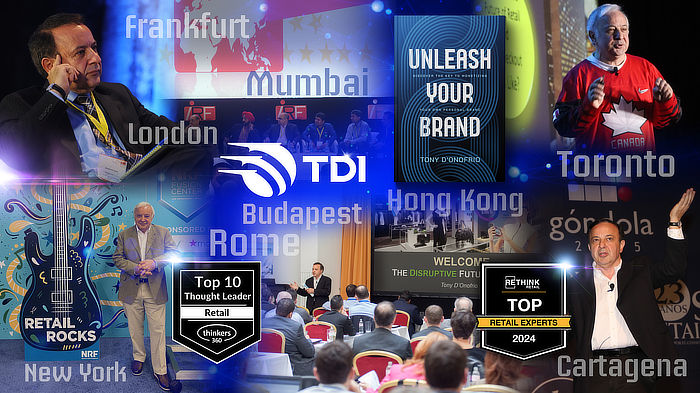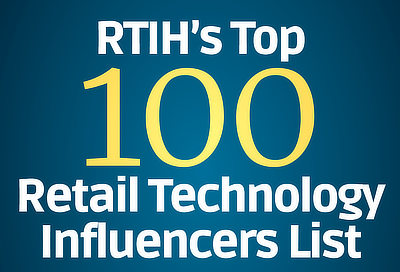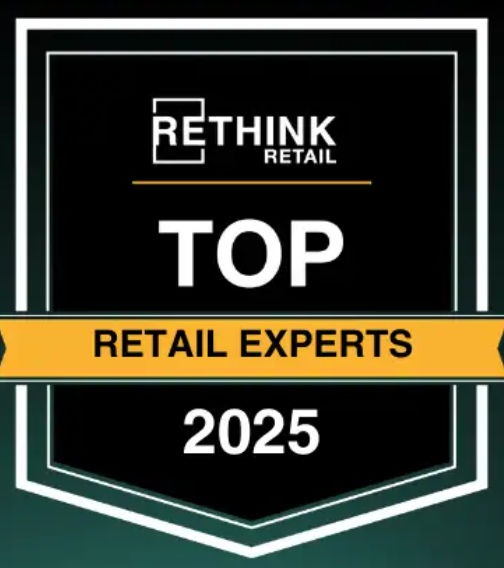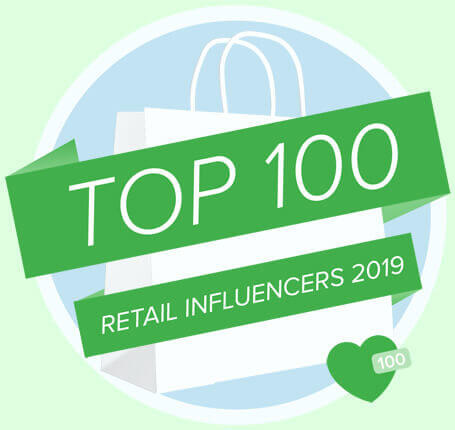Loss Prevention Research Council Weekly Series - Episode 153 - More Retail Crime, Amazon Go Closings, and AI
With Dr. Read Hayes, Tony D'Onofrio, and Tom Meehan
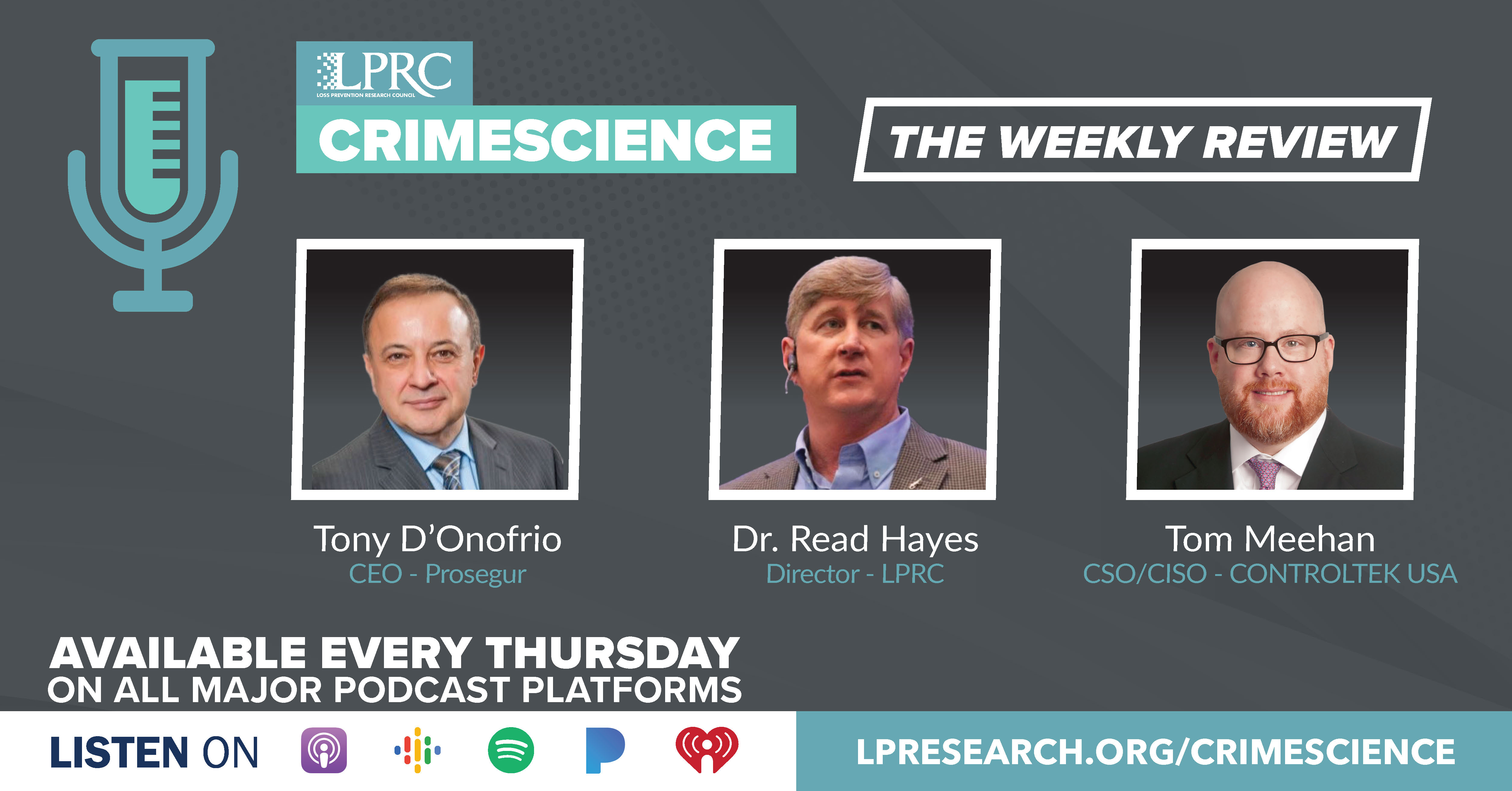
Costco cracks down on sharing membership cards
https://www.nbcnews.com/business/business-news/costco-cracks-membership-card-sharing-rcna91493
Let me start this week with some news from NBC News which reported that Costco is cracking down of members sharing membership cards.
As they reported, the retailer is cracking down on people sneaking into its clubs and trying to shop with other people’s membership cards, it said Tuesday.
Costco said it has always asked shoppers for their membership cards at the cash registers when they check out. Now, it is also requesting to see cards with a photo at self-checkout registers — and to view a photo ID if a shopper’s membership card has no picture.
Costco stands apart from other retailers because of its business model. The bulk of its earnings come from membership fees, which help cover company expenses and keep prices low. It charges $60 for annual memberships and $120 a year for its higher-tier plan, called Executive Membership.
According to Four Week MBA, in 2022, Costco generated $4.2 billion dollars just from membership fees.
Looks likes it is not just Netflix cracking down on passwords, retailers with physical stores are getting into the act.
Police recover $7 million worth of Nike sneakers in Torrance shoe bust
https://www.cbsnews.com/losangeles/news/police-recover-7-million-worth-of-nike-sneakers-in-torrance-shoe-bust/
Switching topics my second popular story this week in my social media feeds was from CBS News on the police in California recovering millions of stolen Nike shoes.
Detectives first learned about this case after receiving a report of several cargo containers being stolen from trucks near the Port of Los Angeles. Investigators tracked the sneakers to Torrance and served a search warrant for the warehouse.
In total, officers seized $7 million worth of Nike sneakers. The Los Angeles Police Department said the sneakers were the only items found in the raid and no arrests have been made. Officers have several people of interest they are trying to locate
As the article reported, they were probably planned to be sold online.
Both the Costco and Nike story were my favorite crime stories of the week.
Amazon Go stores closures continue
https://www.retaildive.com/news/amazon-go-closures-continue/653540/
Also interesting this week was news from Retail Dive that another Amazon Go store is closing.
Amazon has closed its Amazon Go location at 5th Avenue and Marion Street in Seattle. The location opened in August 2018, and was the second store to open under Amazon’s frictionless c-store brand.
So far, 2023 has been a tough year for Amazon Go. This closure comes about three and a half months after the company announced it would be closing eight of its automated-checkout convenience stores — two each in Seattle and New York City and four in San Francisco. It also announced in February that it has paused the rollout of its Amazon Fresh grocery stores.
With this latest closure, Amazon Go now has 22 locations in four states, according its website. It has not opened a new location since debuting a suburban store in Washington state, shortly before the March closures.
Consortium for Operational Excellence in Retail
Switching topics, this week I am at Wharton at the University of Pennsylvania at the annual Consortium for Operational Excellence in Retail.
From an operational point of view, here are some of the topics being debated in retail from the day 1 session: how to optimize productivity in the use of the chat function in ecommerce, does disclosing diversity and inclusion improve brand attitudes, racial and gender biases in customer satisfaction surveys, the true cost of getting those deliveries to your home, local purchasing of products in the aftermath of a disaster, the effect of Fair workweek laws on worker schedules and store performance, new data sets being deployed by the bureau of labor statistics, the future of retail grocery store labor, and a framework for retaining your best employees.
At dinner, senior retail leaders in drug stores, convenience, department stores, mall owners, auto parts, and grocery presented their views of what lessons from the last 30 years of retail and what they tell us about the next 30 years. Really motivating discussion on the potential for the industry, reflective on brands no longer with us, emphasizing the importance of technology, and as a CEO of a very large department store chain said, two things matter in retail and they will never change: customer experience in the store and the product selection you make available.
I asked the question on shrink and the consensus was that it’s not hype, it is real, and it is changing. Government laws with thresholds on shoplifting amounts identified as an issue by multiple individuals.
In that room, you felt that retail is alive and has a bright future.
Consumer confidence jumps in June
https://chainstoreage.com/consumer-confidence-jumps-june
On a retail good news front, let me go to Chain Store Age which reported that consumer confidence jumped in June.
US consumer confidence rose in June to its highest level since January 2022 even as some consumers still expect a recession.
The rise in consumer confidence in June reflects improved current conditions and a pop in expectations, according to Dana Peterson, chief economist at The Conference Board.
Greater confidence was most evident among consumers under age 35, and consumers earning incomes over $35,000.
That is good news for the economy.
What will artificial intelligence do for us in the future
Interesting also this week is a poll question that I asked on my LinkedIn profile to my large audience on the future of AI.
Very simply, I asked will AI destroy humanity, it’s just hype so ignore it, or 3rd choice it will dramatically improve our lives.
The good news is that 47% said it would dramatically improve our lives, but I was surprised that 36% said it would destroy humanity, with rest being 17% saying it’s just hype.
What do you think will happen when AI become ubiquitous to all of us.



